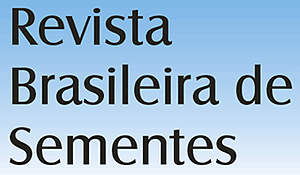Bioassays constitute a practical and efficient alternative for detection of genetically modified soybean seeds (GM) tolerant to gliphosate. However, their use should be analyzed in the identification of seeds when the lot is of GM soybean, in other words, when seeds of conventional soybean are the minority. The objectives of this study were to adjust the methodology of two bioassays to detect GM soybean seeds and to test the best protocols, one of each bioassay, in the detection and quantification of simulated mixtures, containing contrasting genotypes for tolerance to the herbicide. In the bioassays, the following were tested: three moistures of the substratum paper (2.0; 2.5 and 3.0 times the dry weight), five solutions (0; 0.01; 0.03; 0.06 and 0.12%) in the method moistened paper with herbicide and four solutions (0; 0.3; 0.6 and 1.2 %) in the pre-soak seed method. The moisture 3.0 and solution 0.03 % constituted the most efficient protocol for detection in the moistened paper method. The moisture 2.0 and solution 0.3 % stood out in the pre-soak seed method. It was more practical and quicker to detect tolerant seedlings than sensitive seedlings in both tests. In samples with higher contamination rates, it was easier to detect and more difficult to precisely quantify the mixtures. The mistakes were relatively rare considering the successes.
Glycine max; modified genetically organism; genetic purity













